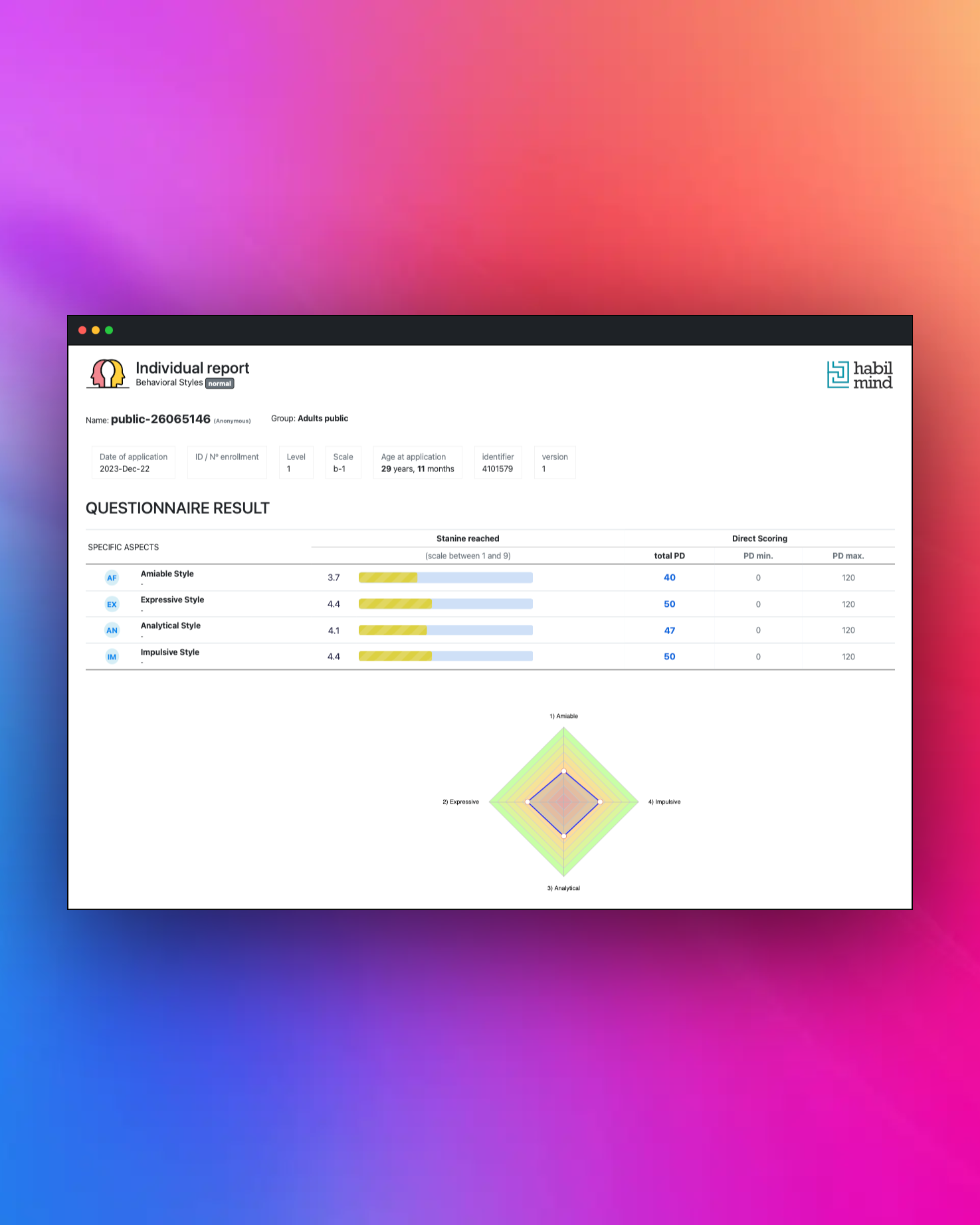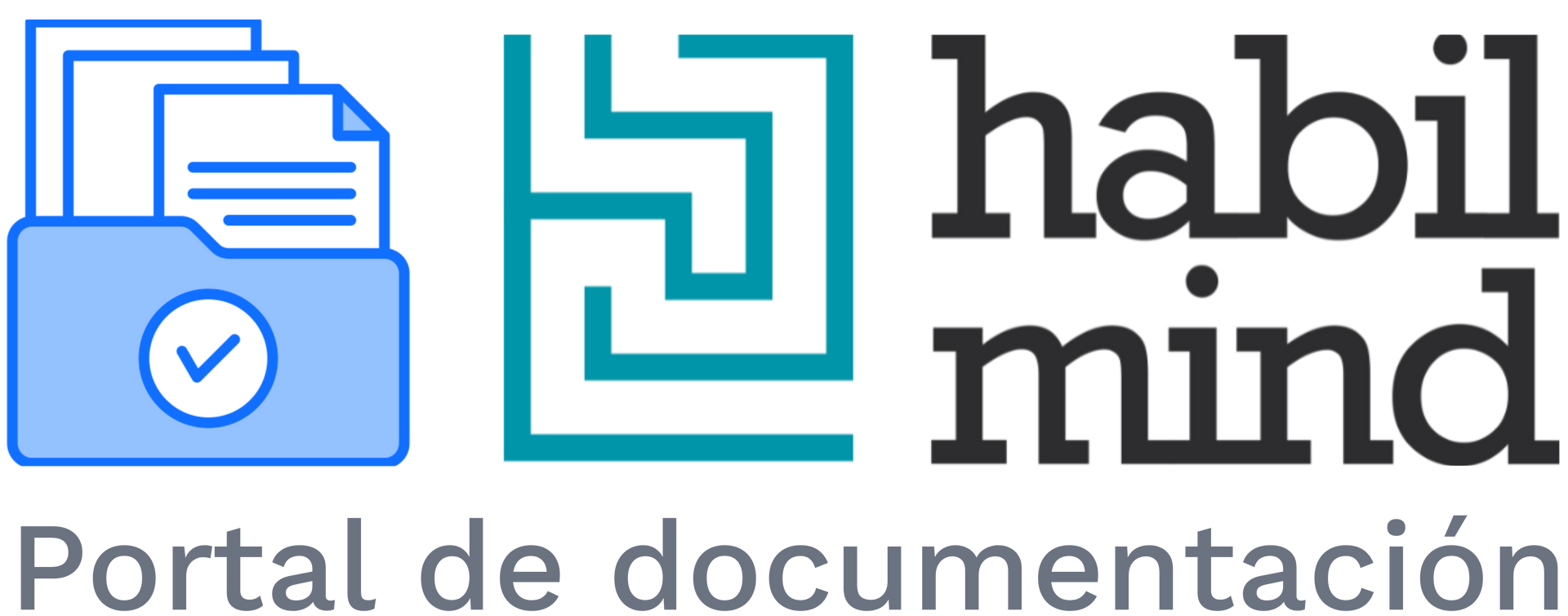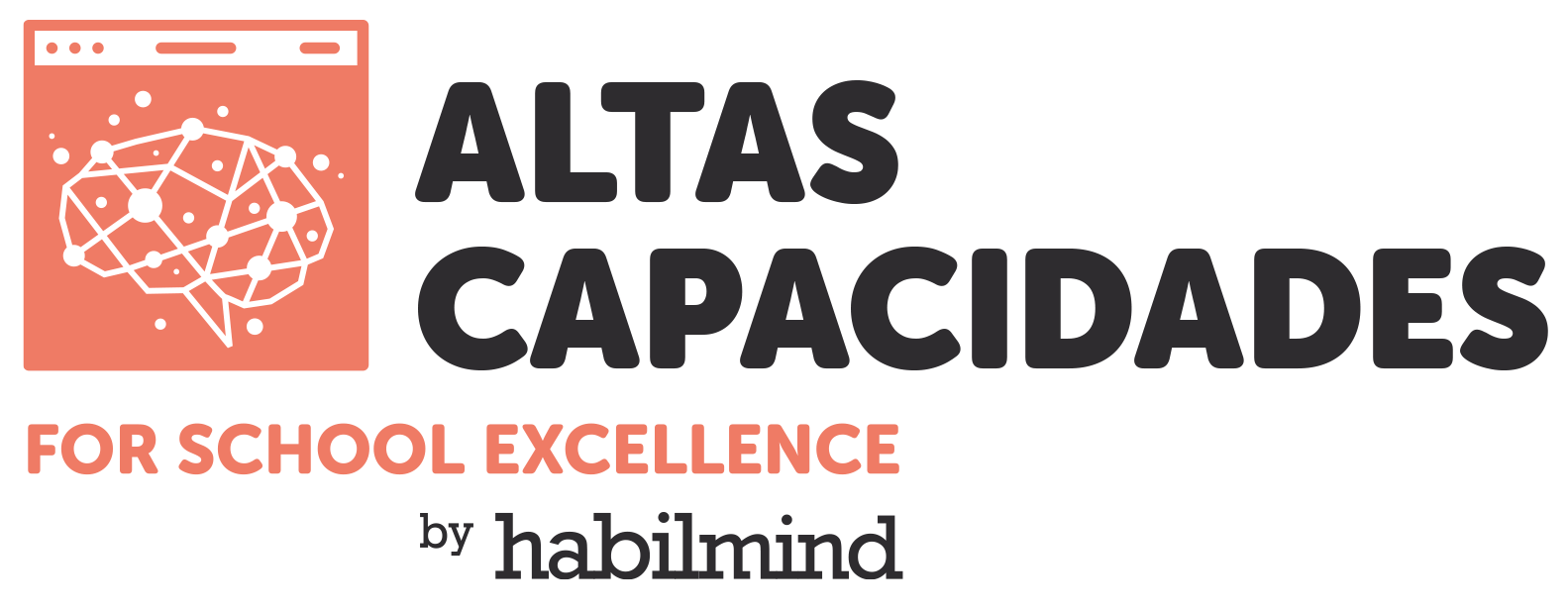Habilmind > Related to the Analysis and Improvement of Teaching Competencies > Behaviour Styles
Behavioral Styles
Self-assessment for leadership teams
An analysis of behaviour styles based on the principles of Anthony Alessandra and Phil Hunsaker, designed to identify response patterns in personal interactions within the workplace.
ℹ️ Application: Collective and individual
🕓 Duration: 15–20 minutes
✅
Applicable age:
Adults

Authors

Isauro Blanco
Researcher and speaker specialising in cognitive development.

Habilmind R&D&I Team
Habilmind team dedicated to educational innovation.
What does your school obtain from this tool?
01
Establish
Better communication within work teams.
02
Enhance
Reflection on key behavioural traits.
03
Manage
Differences among team members effectively.
04
Prevent
Lack of alignment and team cohesion.
05
Assess the impact
Through the re-administration of the tool.
Problems you prevent (or mitigate) when using Behaviour Styles
1. Improved coordination and teamwork: Identifying behaviour styles helps form more efficient work teams by considering personality preferences, leading to better performance and collaboration.
2. Promotion of a positive work environment: Understanding behaviour styles helps prevent conflicts and fosters effective communication among teachers, contributing to a more harmonious workplace.
3. Strengthening of interpersonal relationships: Recognising different behaviour styles encourages empathy and mutual support among colleagues, enhancing workplace relationships and overall job satisfaction.
4. Prevention of work-related stress and burnout: Creating well-balanced teams based on behaviour styles can reduce workplace stress and prevent emotional exhaustion by promoting fair task distribution and greater collaboration among team members.
On which platforms of the Habilmind Ecosystem
is this tool available?
Useful Links
Authors
Explore the contribution of the author and Habilmind’s R&D team in the development of the Behaviour Styles test. Read more
Check prices and benefits instantly
Use the “Prices” button to view the available plans and choose the one that best suits your school.
Free trials are available for schools, colleges, institutes, universities, clinical psychologists, and researchers.



























































